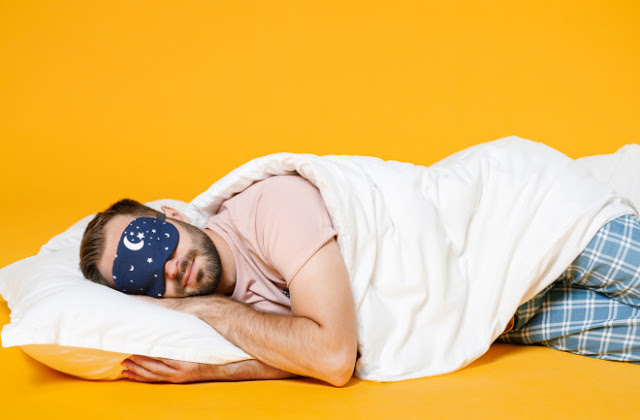How To Fall Asleep Fast Overcoming Insomnia
Insomnia is a sleep disorder that affects millions of people around the world. It is characterized by difficulty falling asleep, staying asleep, or both, leading to unrefreshing or inadequate sleep. This can have a negative impact on a person's daily life, affecting their mood, energy levels, and ability to function at their best.
Insomnia can be caused by a variety of factors, including stress, anxiety, depression, jet lag, chronic pain, and certain medications. In some cases, it may be a symptom of an underlying medical condition, such as sleep apnea or restless leg syndrome.
Treatment For Insomnia
Treatment for insomnia typically involves a combination of lifestyle changes and medication. Some simple steps that can help improve sleep include sticking to a regular bedtime routine, creating a sleep-friendly environment (e.g., keeping the bedroom dark and quiet), and avoiding caffeine and alcohol before bed. In addition, relaxation techniques such as meditation and deep breathing can help reduce anxiety and promote sleep.
If lifestyle changes alone are not enough to improve sleep, a healthcare provider may prescribe medication to help. There are several types of medications that are commonly used to treat insomnia, including non-benzodiazepine hypnotics (e.g., zolpidem), benzodiazepines (e.g., lorazepam), and melatonin agonists (e.g., ramelteon). These medications can help people fall asleep faster and stay asleep longer, but they can also have side effects and should be used with caution.
In addition to medication, cognitive behavioral therapy (CBT) can be an effective treatment for insomnia. CBT is a type of therapy that helps people change the thoughts and behaviors that are contributing to their sleep problems. This can include techniques such as relaxation training, stimulus control, and sleep restriction, which can help people establish healthy sleep habits and improve the quality of their sleep.
Overall, insomnia is a common and treatable sleep disorder. If you are experiencing difficulty falling or staying asleep, it is important to talk to your healthcare provider. With the right treatment and support, you can get the restful sleep you need to feel your best.
How To Fall Asleep Fast
One of the most important things you can do to fall asleep quickly is to establish a regular sleep schedule. Going to bed and waking up at the same time each day can help regulate your body's internal clock and make it easier to fall asleep at night. It is also important to create a sleep-friendly environment in your bedroom. This means keeping the room dark, quiet, and cool, as well as having a comfortable mattress and pillows.
In addition to creating a conducive sleep environment, it is also important to relax before bedtime. This can help reduce stress and anxiety, which can interfere with sleep. Avoid screens (e.g., TV, phone, tablet) at least 30 minutes before bed, as the blue light they emit can disrupt your body's production of melatonin, a hormone that helps you sleep. Instead, try a relaxing activity such as reading or listening to soothing music.
Relaxation techniques can also be helpful for falling asleep quickly. Deep breathing, meditation, and progressive muscle relaxation can all help you unwind and prepare for sleep. You may also want to consider taking a natural sleep aid, such as valerian root or melatonin. However, it is important to talk to your healthcare provider before trying any new supplement, as they can interact with other medications and have side effects.
In conclusion, falling asleep quickly is essential for getting a good night's rest. By establishing a regular sleep schedule, creating a sleep-friendly environment, and relaxing before bedtime, you can improve your chances of falling asleep quickly and getting the restful sleep you need to feel your best.
Tips For To Fall Asleep Quickly
Here are some tips for falling asleep quickly:
- Stick to a regular sleep schedule. Going to bed and waking up at the same time each day can help regulate your body's internal clock and make it easier to fall asleep at night.
- Create a sleep-friendly environment. Keep your bedroom dark, quiet, and cool. A comfortable mattress and pillows can also help you fall asleep faster.
- Relax before bedtime. Try to avoid screens (e.g., TV, phone, tablet) at least 30 minutes before bed, as the blue light they emit can interfere with your body's production of melatonin, a hormone that helps you sleep. Instead, try a relaxing activity such as reading or listening to soothing music.
- Use relaxation techniques. Deep breathing, meditation, and progressive muscle relaxation can all help you unwind and prepare for sleep.
- Consider taking a natural sleep aid. Some herbs and supplements, such as valerian root and melatonin, can help promote sleep. However, it is important to talk to your healthcare provider before trying any new supplement, as they can interact with other medications and have side effects.
Remember that everyone is different, so what works for one person may not work for another. Experiment with different techniques and see what works best for you. And if you continue to have difficulty falling asleep, it may be worth talking to your healthcare provider to see if there is an underlying cause that needs to be addressed.




Post a Comment for "How To Fall Asleep Fast Overcoming Insomnia"
Post a Comment